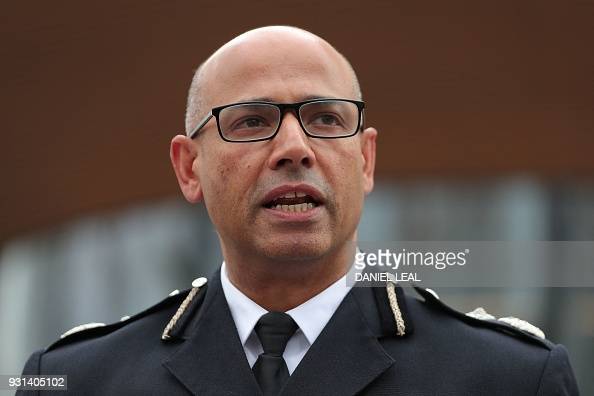
ONE OF Britain’s top police officers, former Assistant Metropolitan Police Chief, Neil Basu claims that the current generation of chief constables in Britain cannot be trusted to end institutional racism in their forces.
Basu was speaking during a long interview for the Ramniklal Solanki Pioneers Project, a collaboration between the University of Southampton and Asian Media Group (AMG), the parent company of Eastern Eye and responsible for the Diversity Hub.
Basu described how he failed to convince his fellow chief officers that it was necessary to apologise and recognise the police department was still institutionally racist in December 2021.
He said: “I spoke to chiefs’ council, and I said it’s taken us two years to put together a race action plan after George Floyd. It took us three months to get the violence against women and girls action plan together, launch it and publish it publicly and nationally after Sarah Everard.
“It’s been two years since George Floyd, and we still haven’t done it, but we’re about to publish it. So, now is the time to admit we’re institutionally racist, say we’re sorry, and say we’re gonna change, so here’s our action plan for change. They refused to do it.
“In January chiefs voted not to do that, and that’s part of the reason why I retired because I don’t trust this generation of chief constables to reverse the problem institutional racism. I’m sorry, I just don’t. They decided that they would rather not do that.
“I understand some of the reasons for not doing it, I just don’t agree.”
Basu is currently a Non-Executive Director of the College of Policing.
Chief Inspector Andy George, the president of the NBPA (National Black Police Association), also exclusively revealed to Eastern Eye, on how he virtually attended several chiefs’ council meetings.
George disclosed that numerous chief officers did not bother to turn on their cameras or microphones during the discussions concerning racism in the force.
This, in his view, proved their lack of concern for important issues impacting communities of colour.
He concurred with Basu that the police chiefs took their time implementing the race action plan, yet they moved fast to investigate the death of Sarah Everard, a white lady, by a Met officer.
The damning Baroness Casey Review – which looked at the Metropolitan Police Service and concluded that major improvements were required as it was found to be institutionally racist, sexist and homophobic was released on Tuesday (21).
It says people from black and mixed ethnic groups have lower trust and confidence in the Met, scoring 10 to 20 per cent lower than average on trust and five to 10 per cent lower on confidence, although declining scores among White Londoners mean that gap is closing.
Baroness Casey said the force was “failing women and children” after the research revealed that 12 per cent of women in the Met had experienced harassment or assault at work.
According to Casey’s study, “more radical, structural options,” like “dividing up” the service, should be taken into consideration if progress on its recommendations is not made.
Sir Keir Starmer of Labour Party said “vast” change is required after the publication of Baroness Louise Casey’s report into the Metropolitan Police, which concluded that there is “institutional racism, sexism, and homophobia” within the force.
Reiterating the remarks he made in January, after police officer David Carrick pleaded guilty to multiple charges of rape committed while he was a serving officer, Starmer claimed that the department requires “root and branch change from top to bottom”.
In a statement on the report, Mayor of London Sadiq Khan said: “The evidence is damning. Baroness Casey has found institutional racism, misogyny, and homophobia, which I accept. She has described the Met as defensive, resistant to change and unwilling to engage with communities.”
His statement continued: “I see police reform as a critical part of my mayoralty, and I will not be satisfied until Londoners have the police service they deserve – one that is trusted, representative and delivers the highest possible service to every community in our city as we work to build a safer London for everyone.”
According to Casey’s study, there are “systemic and basic flaws” with how the Met is administered, which was commissioned after Sarah Everard was killed by serving police officer Wayne Couzens.
It also reveals that if recruitment continues its current trajectory, it will take at least another thirty years, until 2053, to reach a gender balance. It will take even longer, until 2061, to reach 46 per cent Black, Asian, and ethnic minority representation.